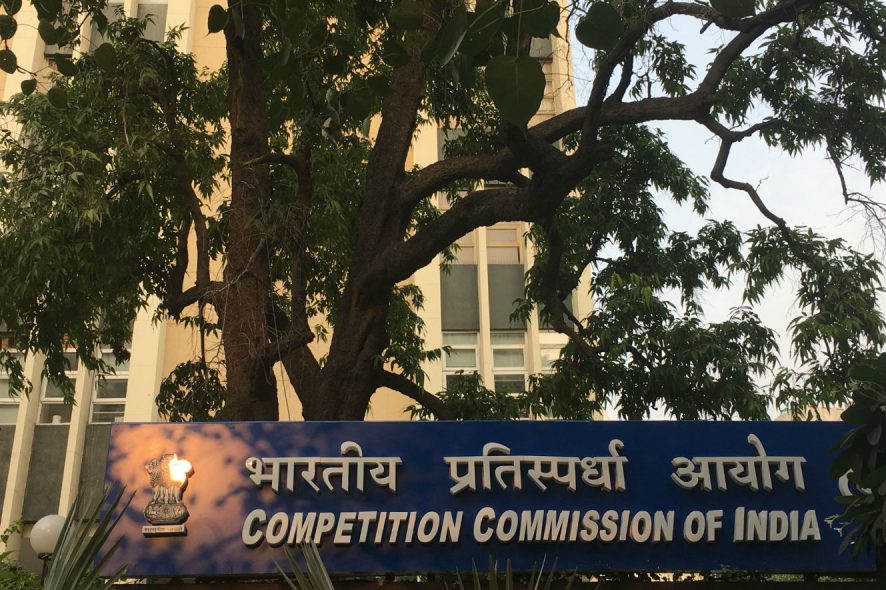Competition Commission of India (CCI): Coram comprising Ashok Kumar Gupta (Chairperson) and Sangeeta Verma and Bhagwant Singh Bishnoi (Members) took suo motu cognizance of the matter regarding alleged prevention of entry of app-based taxi aggregator companies in the State of Goa.
Based on newspaper reports regarding alleged concerted action to prevent entry app-based taxi aggregator companies in the State of Goa, Commission took up the present matter suo motu against tourist taxi unions operating in the State of Goa.
Another significant issue in the matter was that the constant strikes by various taxi unions, tourists were getting affected in Goa.
What were the demands of the above-stated Unions?
- Crackdown on Illegal Taxi
- Cancellation of installation of speed governors.
Prima Facie Observation of the Commission
Taxi Unions conduct in not allowing any app-based service providers in the State of Goa was putting a restrain on services based on technology and limiting the competition, technical development as well as investment in provision of relevant services.
Another observation was that the reforms by the State Government in terms of bringing transparency and improvement in the delivery of services was also being prevented.
The above resulted in restriction to the choice of consumers which was in contravention of Section 3(3)(b) read with Section 3(1) of the Competition Act.
In view of the above observations, DG was directed to conduct an investigation and submit a report.
What was in the DG’s report?
DG found the conduct of taxi unions to be in violation of Sections 3(1) and 3(3)(b) of the Competition Act.
DG noted that there are no fare meters and organised groups of taxi operators in Goa control the rates as well as the routes. Further, it was observed that the taxi operators in North and South Goa use different rate charts and tourists in Goa have to pay more than thousands of rupees even for short distance travel.
During investigation, certain violent incidents were reported alleging manhandling of Zoomcar users and their vehicles damaged by local taxi union operators.
Commission’s Observation on perusing DG Report
Coram noted that no material was placed in regard to conduct of OPs indulging in strikes except few YouTube videos, Facebook Blogs and news clippings and such material remained uncorroborated and unauthenticated.
DG failed to examine the reasons mentioned by the OPs for resorting to strikes, which included increase in fees for permits, backdoor entry of app-based taxi aggregators and installation of speed governors in taxis. OP-4 had pointed out certain other issues such as:
‘proposed Mopa Airport, Speed Governors, Harassment of taxi drivers at the airport, frequent requests to the Government of Goa for putting up taxi fare rates at all tourist destinations, to stop private cars operating as illegal taxies, and to stop private cars being given on rent for self-driving’
Restriction on entry of OLA and UBER
Authorised representative of Uber stated that Uber did not even apply for any license for starting app-based taxi services in the State of Goa.
With regard to OLA, DG failed to examine the reasons behind its exit from the State of Goa, though it was noted that Shekhar Dutta, Senior Director, ANI Technologies (OLA), had stated that they had received threats from Taxi Owners Associations (without naming any specific OPs) and the association members vandalized the assets and did gherao of their office premises without elaborating any details of such incident in precise manner.
“…meeting with head of political executive in a joint representation, raising grievances cannot be said to violate the provisions of Competition Act.”
Though nothing on record was placed to show that the OPs gave any joint representation to the State Government.
Concluding the matter, Coram observed that State of Goa took a policy decision and issued guidelines titled as “Guidelines for Taxi Operator/ Radio Taxis/ Rent A Car and Taxi App Aggregators in the State of Goa” as per which app-based taxi aggregators were permitted to operate and were allowed to have range bound dynamic pricing which was on lines of the business model of OLA & Uber.
“despite the opposition of OPs, the State of Goa does not appear to have acceded to or conceded to the demands of the OPs and the policy allowing entry of app based taxi aggregators was eventually notified.”
Hence no case of contravention of Sections 3(1) read with 3(3) of the Competition Act was made out. [Alleged anti-competitive conduct of taxi unions in the State of Goa, In re., Suo Motu Case No. 2 of 2018, decided on 22-06-2021]







